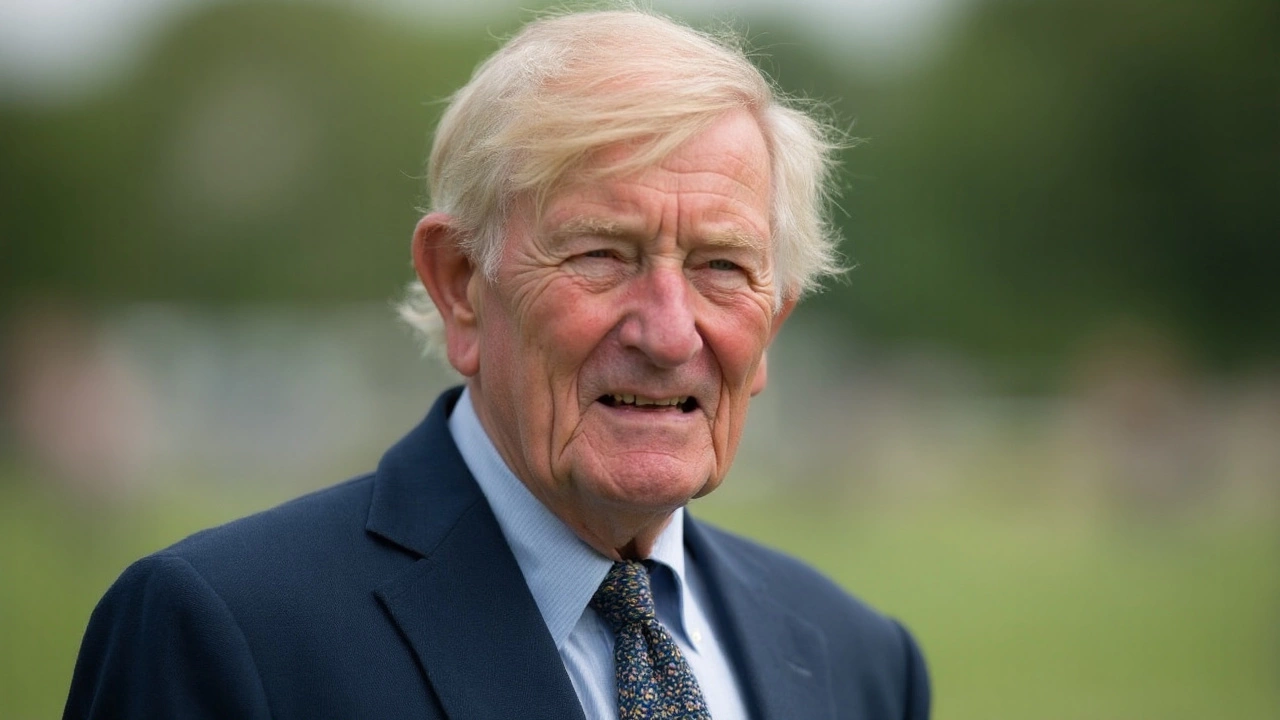Dickie Bird – The Legendary Cricket Umpire and His Impact on Sports Officiating
When you hear the name Dickie Bird, the famed English cricket umpire known for his keen eye and unmistakable style. Also known as Harold "Dickie" Bird, he became a household name by combining strict rule‑keeping with a friendly grin. His career shows how cricket umpiring, the practice of enforcing the Laws of Cricket on the field can turn into a craft that fans respect. The world of sports officiating, the broader discipline of managing rules in any sport took cues from his calm demeanor, proving that a good umpire does more than call outs – they keep the game flowing.
One of the biggest shifts in officiating came with the decision review system, a technology that lets players challenge on‑field calls and get a video check. While Bird never faced video replay, his reputation for accuracy helped pave the way for such tools. The system now supports cricket, tennis, and even Formula 1, where race stewards review overtakes in real time. In short, Dickie Bird embodies the idea that clear judgment and consistent standards are the backbone of any sport, and modern tech only sharpens that foundation.
From the Pitch to the Track: How Officiating Principles Cross Sports
Motorsport may seem far from a cricket field, but both rely on precise rule enforcement. In racing, officials monitor speed limits, pit lane entry, and safety car procedures – tasks that echo an umpire’s duty to watch for no‑balls or leg‑before‑wicket decisions. The same principles of fairness, safety, and transparency guide both realms. When a driver’s cornering line is questioned, stewards review telemetry, much like a review system checks a disputed catch. This crossover shows that Bird’s legacy extends beyond cricket; it influences how we think about fair play in high‑speed environments too.
Bird’s career also taught upcoming officials how to handle pressure. Whether it’s a tense Test match or a close finish on a racetrack, the ability to stay calm and stick to the rulebook makes the difference between chaos and a smooth competition. Growing referees often study his body language – the calm walk, the clear signals – and adapt those habits to their own sports, be it football, rugby, or motorsport. That ripple effect is a key reason why his name still appears in officiating courses worldwide.
Another lesson from Bird is the importance of communication. He never shouted; he explained decisions with a brief, friendly tone. Modern sports officials now use microphones, hand signals, and even on‑screen graphics to keep players and fans in the loop. This shift mirrors the way race control broadcasts decisions during a Grand Prix, ensuring everyone knows why a penalty was handed out. Clear communication reduces confusion and builds trust – a direct line back to Bird’s style.
When you combine all these threads – cricket umpiring, the decision review system, sports officiating standards, and motorsport rule‑keeping – a clear picture emerges: effective officiating is a blend of human judgment and technology. Bird’s era relied on his eyesight and experience; today’s officials add video replay, live data, and instant messaging. Yet the core values remain the same: fairness, consistency, and respect for the game.
If you’re curious about how these ideas play out across the site, you’ll find articles that dive into the nitty‑gritty of racing licenses, the athlete status of drivers, and even the debate on whether motorsport belongs in the Olympics. Each piece ties back to the central theme of rules shaping sport. By reading on, you’ll see how the same principles that made Dickie Bird a legend also guide the fastest cars on Earth.
So, whether you’re a cricket fan intrigued by the man behind the wicket or a speed junkie wondering how officiating keeps the track safe, the stories below will give you practical insights, historical context, and a fresh look at how rule‑makers keep the action fair and thrilling. Let’s get into the collection and see how these topics connect.
- September 24, 2025
- Comments 0
- Cricket
